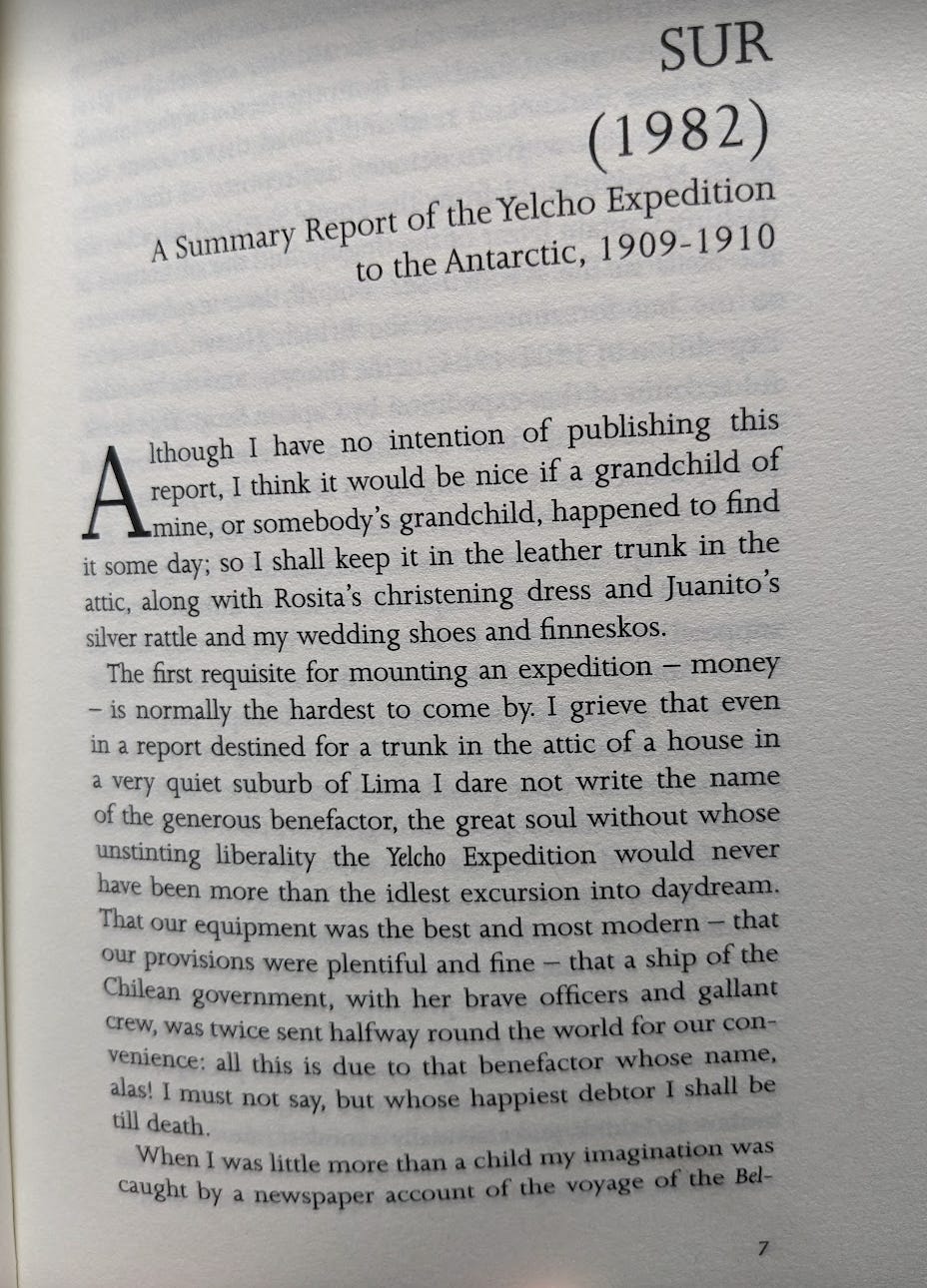Mom is Tired
How self-care and burnout relate to Antarctica explorers and the writers' strike

I’ll be totally honest with you guys. This is the 15th weekly edition of The Golden Hour and for the first time I just couldn’t figure out what to write.
I think the problem is that I’m out of gas right now. This fall is packed full of (important!) obligations and (wonderful!) opportunities and (exciting!) collaborations and (rich and varied) projects. Like, way too full. Way, way too full.
Today is our first Climate Mental Health Network family focus group (Sign up if you’d like to participate in a future paid focus group!) Starting Friday I’m taking off for engagements in DC, New Haven, San Antonio and Mexico City.
And I’m looking forward to it all. Not only the talks themselves, but knowing that as soon as I leave town, my focus and productivity will improve and my stress will start to melt away. Why? Because I’ll be immediately, temporarily relieved of the second shift: kids, housework, pet care, cooking, grocery shopping, and in-person social and community obligations. Instead all I’ll have to do is catch trains and airplanes. Easy.

But this is the stuff of life. Why does it feel so unsustainable? Because the entire system is unsustainable. And this of course connects to climate change.
I’m still turning over in my head this sentence I read a couple of days ago in an unusually clear and penetrating essay, “Antarctica The Woman,” by Stephanie Krzywonos in Emergence Magazine:
”American mothers are exhausted and so is American land—as well as other places and people we abuse—because they’re valued in the same way: as resources from which to extract.”
(You should read the whole thing, and if you do, you should immediately then read the story “Sur” from Ursula K. LeGuin’s wonderful and wonderfully titled book Space Crone. )
This quote reminds me in turn of my friend Pooja Lakshmin’s book Real Self-Care, which she talked about recently with Tressie McMillan Cottom on Ezra Klein’s podcast.
To summarize (and read the book!), real self-care has nothing to do with Goop, scented candles or yoga classes. It means the hard work of setting boundaries and aligning our choices with our values. But burnout still happens, because we are part of bigger systems.
(Shout out to the UAW for normalizing a 4-day work week, and congrats to the Writers Guild of America for winning a minimum number of colleagues to collaborate with. )
“When we’re blaming the individual for something like burnout, we’re actually exonerating the broken social structures,” Dr. Lakshmin said on the podcast. “And so I guess what I’m trying to do with Real Self-Care is thread that needle of, where does individual action fit into collective action?”
And of course, this is the question in climate work.
Self-preservation is necessary, but not sufficient. We have to reserve the personal resources to act in service of broader change at the same time. And we can only do all that with mutual and community support (Hello, unions!). Asking for, giving and receiving help.
So that’s all I’ve got for you today. Except! Climate Mental Health Network has released a brief guide I wrote to Climate Emotions Coping Strategies, and you can read it here. And here is my previous post on How To Cope. And here is a quick visual.
Also ! great to see the Climate Emotions Wheel featured in this story about Gen-Z and climate emotions.







Recently, my girlfriend and I were discussing the phenomenon of choices vs obligations. It seems like something that happens in life is that you start a cycle by making a choice about how you’d like to spend your life. And it starts out feeling like a choice. But making and maintaining this choice leads to a series of draining obligations. Then, the obligations start to crowd out the choice itself.
So eventually you’re living a life where everything feels like an obligation to maintain a choice that you made in the past about how you want to live your life. But you’re barely “living” your original choice because the thing you chose is now buried under so many related and unpleasant obligations that it’s unclear if given the maintenance required you’d make the same choice again.
Add into this the double whammy of the novelty of things wearing off with the declining energy levels that accompany each passing decade and you basically get a recipe for a personal lifestyle disaster where you’re swimming at full speed treading water just to keep your life afloat whilst trying to ignore the fact that your life sort of barely even does it for you anymore.
I think there’s ways to beat it but that said I see it happen pretty frequently. It’s sort of the main trap of adulthood to some extent.